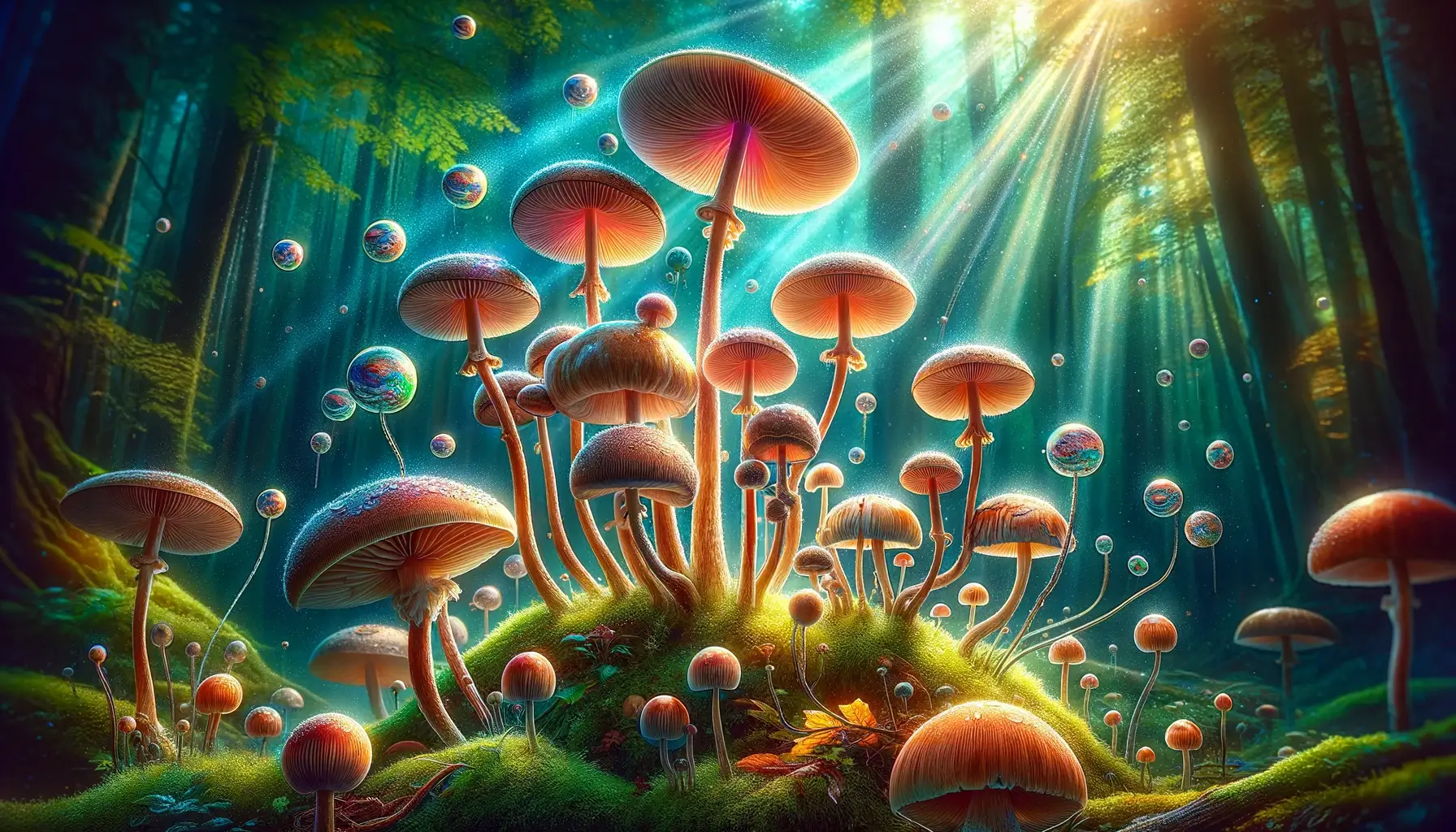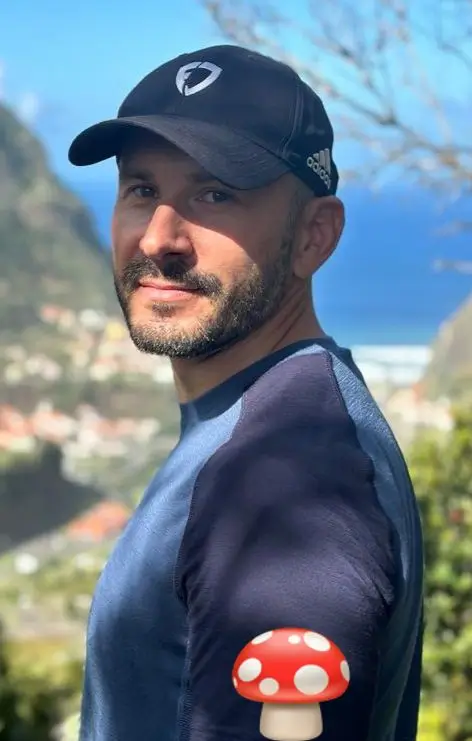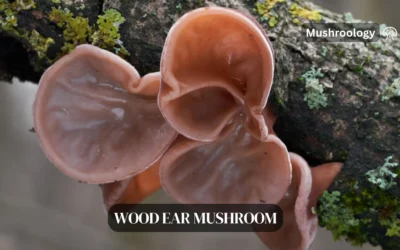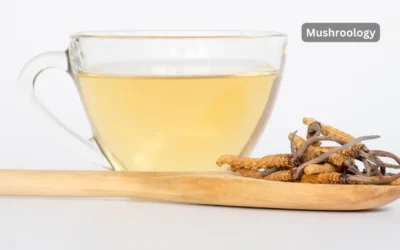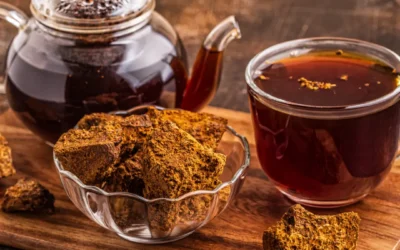Mushrooms containing the psychedelic compound psilocybin have an extensive global history intertwined with humans. Often called “magic mushrooms,” these fungi induce altered states of consciousness, including hallucinations, mood changes, and spiritual experiences. While considered illegal in many modern societies, magic mushrooms maintain an enduring cultural relationship.
Found in over 200 species, psilocybin mushrooms thrive across the Americas, Europe, Asia, Africa and Australia. The most potent varieties belong to the fungal genus Psilocybe.
Indigenous peoples used Psilocybe mushrooms ritually for millennia, with evidence dating back as far as 9000 BCE in North African rock art. Aztec spiritual leaders also revered teonanácatl or “flesh of the gods” – what we now recognize as Psilocybe mushrooms.
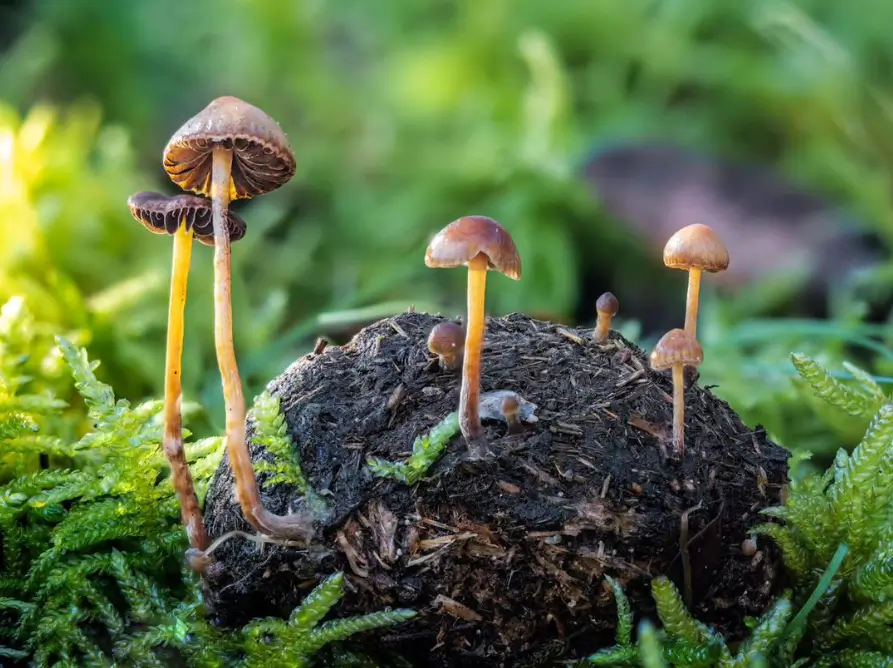
During the Spanish Inquisition, Catholic missionaries condemned psilocybin mushrooms as mystical trickery. Despite suppression, mushrooms retained their spiritual symbolism in Mexico. Yet, for centuries, academic knowledge of “magic” mushrooms has remained obscure in Europe and the U.S.
This changed in 1957 when R. Gordon Wasson published an article in Life Magazine about his experience consuming psilocybin mushrooms in rural Mexico. This popularized academic interest in mushrooms’ mind-altering capacities. Throughout the 1960s, Harvard researchers like Timothy Leary promoted psilocybin as a creativity and consciousness-expanding tool.
Yet, as recreational use increased, the U.S. criminalized psilocybin mushrooms as a Schedule 1 illegal substance by 1970. Other countries followed suit. However, rare medical analysis during this period showed psilocybin mushrooms have remarkably low toxicity for a psychedelic substance if consumed responsibly.
Recently, scientists reinitiated studies on psilocybin’s therapeutic potential. Small clinical trials show it can alleviate anxiety, depression, and PTSD symptoms and help terminal patients accept death. This prompted policy shifts, with Denver decriminalizing mushrooms in 2019 and Oregon legalizing therapeutic use in 2020.
Attitudes aside, magic mushrooms continue thriving throughout nature. In fact, urbanization helps certain species prosper, especially in the U.S. Pacific Northwest. Landscaped gardens with wood chip beds provide excellent habitats for Psilocybe mushrooms to flourish.
Today, with evolving legal perspectives and recognition of therapeutic benefits, magic mushrooms stand poised to undergo a cultural rediscovery. Yet their allure through the ages reminds us that fungi have long captured our imaginations through their mystical, mind-expanding capacities. Wherever humans and mushrooms intersect, curiosity and controversy continue.
The main points about how psilocybin, the psychoactive ingredient in magic mushrooms, works and its effects on the human brain include:
- Psychoactive Component: Psilocybin is the primary psychoactive compound in magic mushrooms, which the body converts into psilocin upon ingestion.
- Mechanism of Action: Psilocin increases serotonin activity in the brain by preventing its reuptake and can also bind to and stimulate serotonin receptors, leading to amplified brain stimulation.
- Effects on Perception: This increased stimulation results in hallucinations, which can be visual or auditory or lead to mystical and insightful feelings. These effects typically last between 3 to 8 hours but can alter the perception of time.
- Brain Activity: Psilocybin may cause the brain to rearrange itself, creating new stable connections, reducing the ability to distinguish reality from fantasy, and intensifying thoughts. This can enhance creativity and “thinking outside the box.”
- Emotional and Consciousness Impact: The drug activates specific emotional regions of the brain, potentially leading to an expanded consciousness.
- Spiritual Significance: In studies, participants have reported profound spiritual experiences, with some ranking the experience as one of the most significant of their lives.
- Well-being and Satisfaction: Most study participants report increased well-being and satisfaction after taking psilocybin.
- Negative Effects: While not considered clinically addictive and causing little toxicity, some users experience fear, paranoia, and terrifying hallucinations.
- Safety Compared to Other Drugs: Studies suggest that magic mushrooms cause the least damage to the individual and others among recreational drugs.
- Research and Legal Status: There is a call for changes in laws to allow advanced research into both the positive and negative effects of psilocybin on the brain.
These insights underscore the complex effects of psilocybin on the human mind, highlighting its potential for profound positive experiences and risks. Further research is necessary to understand its impacts and therapeutic potential fully.
What are the potential negative effects of psilocybin mushrooms?
Based on the search results, some potential negative effects of using psilocybin mushrooms include:
Psychological effects:
- Anxiety, panic attacks, paranoia
- Fear, grief, confusion, disorientation
- Hallucinations that cannot be distinguished from reality
- Potential long-term effects on mental health in predisposed individuals
Physiological effects:
- Nausea, vomiting, abdominal pain
- Increased heart rate and blood pressure
- Dizziness, loss of physical coordination
- Seizures, loss of consciousness in some cases
Experiences:
- “Bad trips” involving terrifying hallucinations and experiences
- Potential self-harm or violence toward others
- Risky behaviour that endangers self or others
The effects and risks appear to be dose-dependent. Using mushrooms with other substances also increases adverse effects and emergency medical treatment. Set and setting influences the experience, with stressful environments more likely to induce negative experiences.
However, lethal overdoses are extremely rare and mushrooms are considered relatively physiologically safe. Most negative effects resolve within 6-24 hours.
Legal status of psychedelic mushrooms:
The United States:
- Psilocybin is illegal federally and classified as a Schedule I controlled substance. Possession, cultivation, and sale carry criminal penalties.
- However, some states and cities have moved to relax restrictions. Oregon and Colorado legalized psilocybin services in supervised settings in 2020 and 2022, respectively.
- Several other states have active campaigns and proposed ballot measures for legalization.
- Over a dozen U.S. cities like Denver, Oakland, and Ann Arbor have also passed resolutions to deprioritize or decriminalize personal use and possession.
Europe:
- Psilocybin is illegal in most European countries. However, penalties and enforcement approaches vary. Some countries have reduced penalties for personal possession of small quantities.
- The Netherlands has a formal policy of non-enforcement for possession of magic mushrooms.
- Portugal has decriminalized personal possession of all drugs, including psilocybin.
Other Regions:
- Many countries have no specific laws banning psilocybin mushrooms or have poorly enforced regulations. These include regions of Central/South America, Eastern Europe, and Southeast Asia.
So, in summary, psilocybin remains illegal in most places globally, but policy shifts to relax restrictions are growing in the U.S. and certain other countries. Ongoing advocacy and research efforts may lead more regions to decriminalize or legalize psilocybin, especially for medical use.
Resources:
[1] https://www.britannica.com/science/psilocybin-mushroom
[2] https://en.wikipedia.org/wiki/Psilocybin_mushroom
[3] https://www.ncbi.nlm.nih.gov/pmc/articles/PMC10350723/

